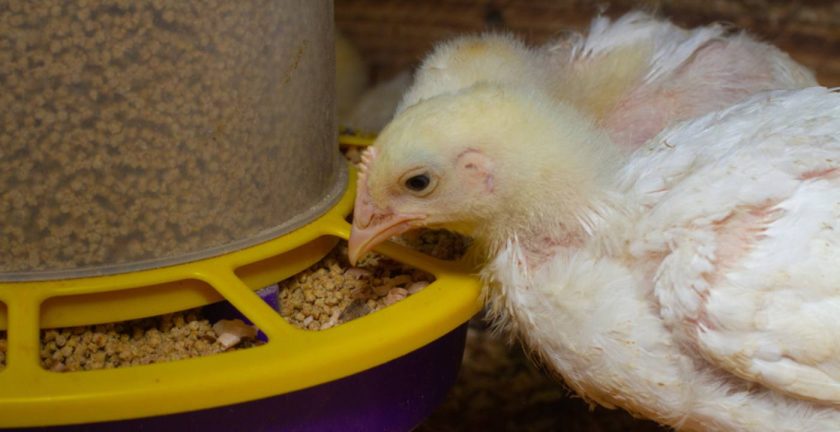Depending on which chickens are being produced, broilers or broiler breeders, up to 70 % of the cost can be allocated to feed. With feed costs continuing to rise, minimizing feed waste is more important than ever. However, feed wastage isn’t just a cost issue.
>> Feed waste can be a biosecurity issue as feed spills can attract wild birds, rodents, beetles (Alphitobius) and other vermin that can carry pathogens onto the farm. Moreover, the environmental footprint is enlarged when resources, including water, energy, and land, used to produce feed ingredients and feed are wasted.
Beginning at the feed mill, correct processing, preventing contamination, and accurate formulation can help reduce feed losses (Photo 1).
>> For example, incorrect processing can lead to pellets that are too hard, in which case birds may reduce or even refuse to consume the feed. Similarly, milling feeds to the correct particle size and uniformity is also important because birds may select larger particles and leave fines.
Photo 1. Beginning at the feed mill, correct processing, preventing contamination, and accurate formulation can help reduce feed losses. Photo source: Cobb-Vantress
Contaminated feed can occur during the milling process in places such as the mixer (carry-over) and post-processing (dust contamination).
- Depending on the severity, contaminated feeds can be reworked, or batches may even be completely lost.
- In the case of rework, time, labor, and energy costs are increased.
Consider potential spillage points as spillage is a direct loss. Accurate weighing is also important, because when feed ingredients are not weighed correctly, feed formulation won’t be correct.
- This may not lead to lost batches of feed but could have negative impacts on flock performance. For this reason, calibrate scales on a regular basis to ensure that ingredients are included at the correct percentage.
Good quality raw ingredients should always be used to produce feed. Poor quality ingredients, such as corn contaminated with mycotoxins will not only decrease the palatability, but also cause health issues. Rancid fats decrease feed palatability, reduce feed intake and absorption, and induce poor uniformity. This is especially important in young chicks (1st week) as a good start in rearing is important for attaining good performance metrics.
To prevent contamination during transport, it’s important to ensure clean trucks are used. Carry-over from previous loads can contaminate feeds with additives such as coccidostats. Trucks should also be completely dry before filling to protect feeds from moisture which can lead to mold growth.
>>With mash feed, there is a possibility of particle segregation during transport, silo filing, and feed distribution in the house.
Particle segregation is an issue because birds may selectively eat large particles and leave fines leading to feed waste and possible nutritional intake deficiencies.
This segregation occurs when there is a big difference in particle size, shape, or density and the feed is shaken (Figure 1).
Additionally, coarser feeds are
Keep up to date with our newsletters
Receive the magazine for free in digital version
REGISTRATION
ACCESS
YOUR ACCOUNT
LOGIN
Lost your password?

